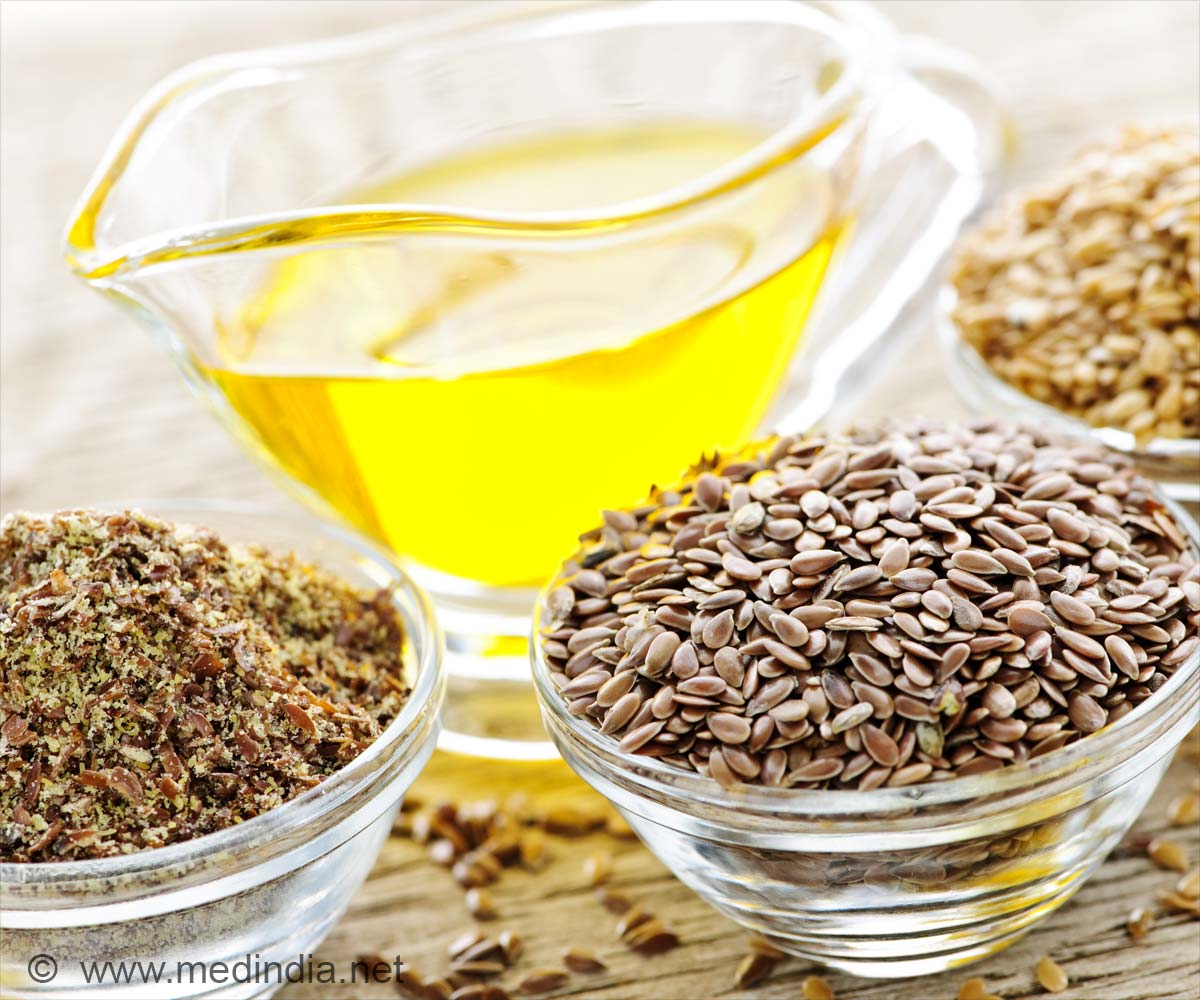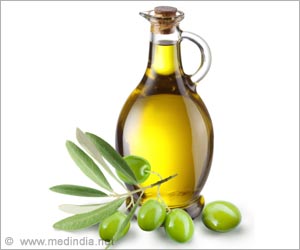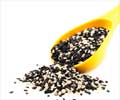Seed oils: Superfood or scapegoat? Discover the truth about their impact on your health and why moderation matters!

- Seed oils, rich in omega-6 and polyunsaturated fats, can promote heart health when consumed as part of a balanced diet
- The criticism of seed oils stems from their presence in processed foods, but the oils themselves are not the direct cause of obesity or inflammation
- Alternatives like olive, avocado, or peanut oil are great, but seed oils remain affordable and heart-healthy choices when used correctly
American Heart Association. There's no reason to avoid seed oils and plenty of reasons to eat them
Go to source). Seed oils are one of the driving causes of the obesity epidemic.
Canola oil has the least saturated fat among commonly used oils- less than 1 gram per tablespoon! It's a heart-friendly cooking choice. #nutritionfacts #medindia’
Hate Eight- Seeds Oils to Avoid
Seed oils are frequently referred to as the "Hateful Eight" by social media users. Canola (rapeseed), corn, soybean, sunflower, cottonseed, safflower, grapeseed, and rice bran oils are all included in this category (2✔ ✔Trusted SourceMassachusetts General Hospital. Seed oils: facts & myths
Go to source). Influencers who advocate against seed oils frequently share videos from supermarkets, urging their followers to stay away from anything that contains these oils.
However, many people find it difficult to stay away from seed oils. These oils are found in many meals in the United States, particularly in processed foods, which account for 60% of the average American diet (3✔ ✔Trusted Source
Changes in Serving Size, Calories, and Sodium Content in Processed Foods From 2009 to 2015
Go to source). Sunflower or soybean oil is frequently listed on the ingredient labels of everyday products like bread, popcorn, and chips.
Judy D. Simon MS, RD, CD, a registered dietitian nutritionist at the University of Washington Medical Center, said, "The oil itself has really been demonized, even though many ultra-processed foods have lower nutrient densities."
The Return of Beef Tallow in the US
McDonald’s cooks its fries in a canola oil blend (4✔ ✔Trusted SourceSnacks & sides FAQs
Go to source), but Robert F. Kennedy, Jr., the Trump administration’s nominee to run the Department of Health and Human Services, has pushed for a return to beef tallow, which was utilized until 1990. Kennedy stated in an Instagram post, "This change was made because saturated animal fats were thought to be unhealthy." Overconsumption of saturated fat can increase "bad" cholesterol levels, which raises the risk of stroke and heart disease.
Avoiding seed oils might be challenging, even if you completely avoid fast food. However, is it really necessary to stay away from seed oils in order to keep up a healthy diet?
Health Advantages of Seed Oils
Dietary fats and oils are a mixture of healthy fats, like polyunsaturated and monounsaturated fats, and less healthy saturated fats (5✔ ✔Trusted SourceWhy do I need to include fat in my diet?
Go to source), (6✔ ✔Trusted Source
Monounsaturated fats
Go to source). Omega-3 and omega-6 fats are examples of polyunsaturated fats. Omega-3s are more abundant in fatty fish, but omega-6s are more abundant in seed oils (7✔ ✔Trusted Source
No need to avoid healthy omega-6 fats
Go to source).
Reducing saturated fats and increasing unsaturated fats is advised by the Dietary Guidelines for Americans (8✔ ✔Trusted Source
Cut down on saturated fat
Go to source). Additionally, the American Heart Association advises against consuming trans or saturated fats in favor of monounsaturated and polyunsaturated fats, such as those found in tofu, nuts, and seed oils (9✔ ✔Trusted Source
Polyunsaturated fats
Go to source).
"Over the years, studies have demonstrated that consuming these polyunsaturated fats has been associated with a decreased risk of death from cancer and cardiovascular disease, thereby providing positive health benefits," Simon added.
Studies have demonstrated that daily consumption of linoleic acid, the main omega-6 in seed oil, does not raise blood inflammatory markers, unlike what some people on social media have claimed (10✔ ✔Trusted Source
Dietary linoleic acid intake and blood inflammatory markers: a systematic review and meta-analysis of randomized controlled trials
Go to source). In fact, linoleic acid may help reduce the risk of heart disease (11✔ ✔Trusted Source
Essential fatty acids
Go to source).
According to Grace Derocha, RDN, CDCES, MBA, a registered dietitian nutritionist located in Detroit and an Academy of Nutrition and Dietetics representative, "concerns regarding omega-6s driving inflammation are often overemphasized and not strongly supported by large-scale evidence."
Another reason why some people choose to stay away from seed oils is oxidation. Unsaturated fatty acids can oxidize and release free radicals when exposed to heat and light (12✔ ✔Trusted Source
Lipid oxidation in foods and its implications on proteins
Go to source). Compared to saturated fats, unsaturated fatty acids- particularly linoleic acid- oxidize more quickly (13✔ ✔Trusted Source
Oxidative Stability of Selected Edible Oils
Go to source).
"Using cooking techniques like sautéing over moderate heat, avoiding prolonged high-heat frying, and properly storing oils can mitigate the risk of oxidized fats producing potentially harmful byproducts," Derocha stated.
Is Beef Tallow Healthier Than Seed Oils?
Protein and carbohydrate sources have four calories per gram, whereas seed oils, like all fats, have nine (14✔ ✔Trusted SourceCarbohydrates, proteins, and fats
Go to source). "A surplus of calories and consequent weight gain can result from consuming too many calorie-dense foods, including those that contain seed oils," Derocha stated. However, blaming seed oils alone is not supported by the facts.
The main reason for the criticism of seed oils is that they are frequently found in highly processed meals that are easy to overindulge in, high in calories, and low in nutrients, such as baked products, fried snacks, and fast food. Weight gain is caused by the total dietary pattern more than the amount of seed oils, according to Derocha.
You can also use beef tallow. One kind of rendered fat produced by boiling down fatty cow tissues is called beef tallow (15✔ ✔Trusted Source
Edible tallow
Go to source). It has very little polyunsaturated fat and primarily monounsaturated and saturated fatty acids.
Saturated fats are scarce in seed oils. One tablespoon of beef tallow has more than six grams of saturated fat, whereas one tablespoon of canola oil has less than one gram and one tablespoon of sunflower oil has 1.36 grams (16✔ ✔Trusted Source
Fat, beef tallow, 1 tbsp
Go to source), (17✔ ✔Trusted Source
Oil, vegetable, sunflower, high oleic (70% and over), 1 tbsp
Go to source), (18✔ ✔Trusted Source
Vegetable oil, canola, 1 tbsp
Go to source). To put it another way, 3 tablespoons of beef tallow would nearly fulfil the daily need of 20 grams of saturated fat (8✔ ✔Trusted Source
Cut down on saturated fat
Go to source). The American Heart Association advises consuming no more than 13 g of saturated fat per day (19✔ ✔Trusted Source
Saturated fat
Go to source).
Because of its high saturated fat content, which prevents oxidation during frying, tallow is more heat-stable, according to Derocha. "The higher saturated fat content may not be in line with heart-health guidelines if consumed in large amounts over time, even though oxidation is less of an issue."
Other options for those who choose not to use seed oils are peanut, avocado, and olive oils, which are higher in monounsaturated fat (20✔ ✔Trusted Source
Types of fat
Go to source). But these oils are frequently more expensive than seed oils.
Despite social media criticism, studies reveal that seed oils like canola and sunflower oil contain healthy polyunsaturated fats that, when taken in moderation, may promote heart health. Focus on a balanced diet that includes a range of healthful fats and less processed foods rather than completely eliminating seed oils.
References:
- American Heart Association. There's no reason to avoid seed oils and plenty of reasons to eat them - (https://www.heart.org/en/news/2024/08/20/theres-no-reason-to-avoid-seed-oils-and-plenty-of-reasons-to-eat-them)
- Massachusetts General Hospital. Seed oils: facts & myths - (https://www.massgeneral.org/news/article/seed-oils-facts-myths)
- Changes in Serving Size, Calories, and Sodium Content in Processed Foods From 2009 to 2015 - (https://pubmed.ncbi.nlm.nih.gov/29543584/)
- Snacks & sides FAQs - (https://www.mcdonalds.com/us/en-us/faq/snacks-and-sides.html)
- Why do I need to include fat in my diet? - (https://healthy.ucdavis.edu/eating-well/nourish-labels/healthy-fats)
- Monounsaturated fats - (https://www.heart.org/en/healthy-living/healthy-eating/eat-smart/fats/monounsaturated-fats)
- No need to avoid healthy omega-6 fats - (https://www.health.harvard.edu/newsletter_article/no-need-to-avoid-healthy-omega-6-fats)
- Cut down on saturated fat - (https://odphp.health.gov/sites/default/files/2021-08/DGA_FactSheet_SaturatedFats-07-09_508c_0.pdf)
- Polyunsaturated fats - (https://www.heart.org/en/healthy-living/healthy-eating/eat-smart/fats/polyunsaturated-fats)
- Dietary linoleic acid intake and blood inflammatory markers: a systematic review and meta-analysis of randomized controlled trials - (https://pubmed.ncbi.nlm.nih.gov/28752873/)
- Essential fatty acids - (https://lpi.oregonstate.edu/mic/other-nutrients/essential-fatty-acids)
- Lipid oxidation in foods and its implications on proteins - (https://pubmed.ncbi.nlm.nih.gov/37396138/)
- Oxidative Stability of Selected Edible Oils - (https://pubmed.ncbi.nlm.nih.gov/30018226/)
- Carbohydrates, proteins, and fats - (https://www.merckmanuals.com/home/disorders-of-nutrition/overview-of-nutrition/carbohydrates-proteins-and-fats)
- Edible tallow - (https://mymarketnews.ams.usda.gov/glossary/edible-tallow)
- Fat, beef tallow, 1 tbsp - (https://www.urmc.rochester.edu/encyclopedia/content.aspx?contenttypeid=76&contentid=04001-2)
- Oil, vegetable, sunflower, high oleic (70% and over), 1 tbsp - (https://www.urmc.rochester.edu/encyclopedia/content.aspx?contenttypeid=76&contentid=04584-1)
- Vegetable oil, canola, 1 tbsp - (https://www.urmc.rochester.edu/encyclopedia/content.aspx?contenttypeid=76&contentid=04582-1)
- Saturated fat - (https://www.heart.org/en/healthy-living/healthy-eating/eat-smart/fats/saturated-fats)
- Types of fat - (https://nutritionsource.hsph.harvard.edu/what-should-you-eat/fats-and-cholesterol/types-of-fat/)
Source-Medindia













